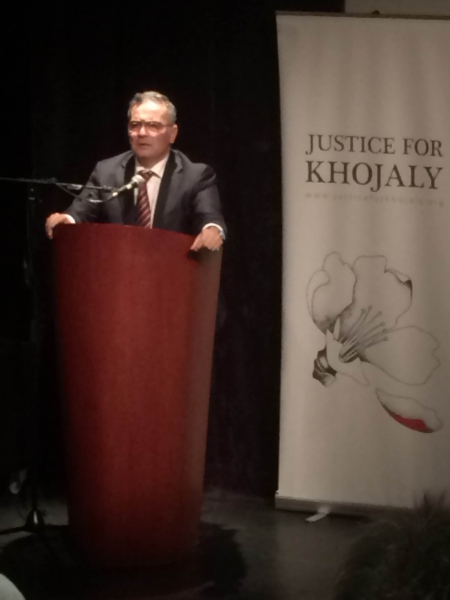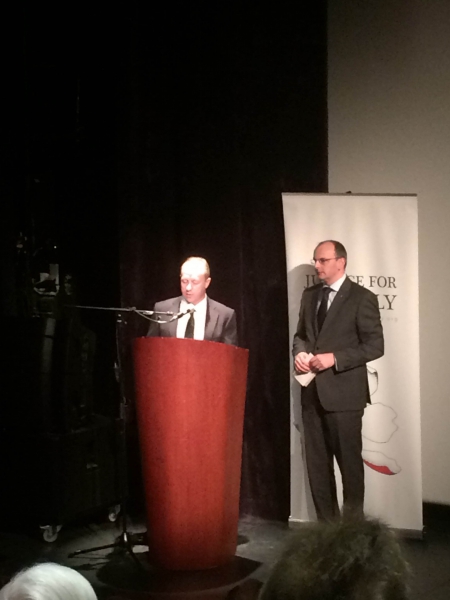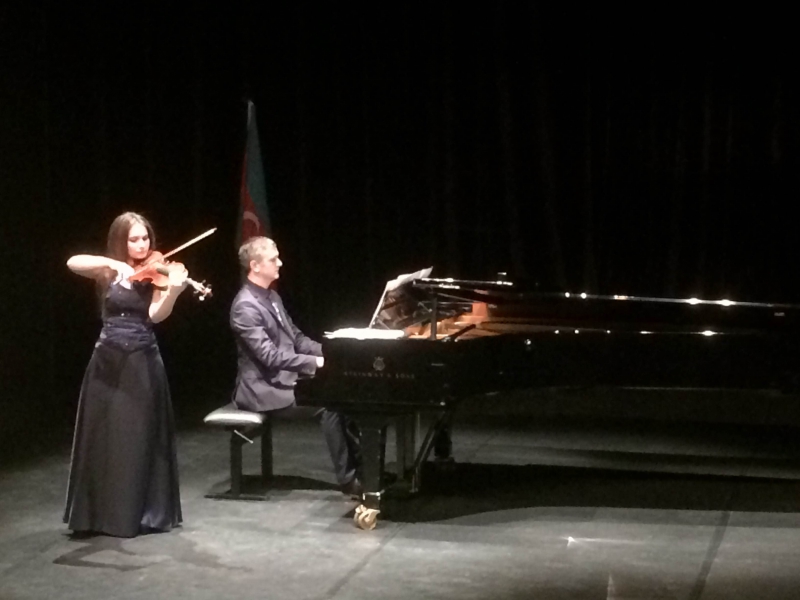Award-winning Khojaly documentary screened in Brussels
Baku, February 25, AZERTAC
Multi-award-winning independent documentary Endless Corridor – a US/Lithuanian co-production – was shown at BOZAR – Centre of Fine Arts in Brussels. The screening, organised within the Justice for Khojaly campaign, commemorated the victims of the Khojaly Massacre on 26 February 1992. This was the worst single atrocity of the Armenia–Azerbaijan conflict over Nagorno-Karabakh and claimed the lives of 613 civilian victims in 1992. The death toll included 106 women, 63 children and 70 elderly people.
Following its international premiere throughout 2015, Endless Corridor has received plaudits from critics across the world. Marc Verwilghen, Director of TEAS Benelux explained: “TEAS is more than proud to organise this event within the framework of the Justice for Khojaly campaign, which is an international awareness campaign initiated by Mrs Leyla Aliyeva, Vice-President of the Heydar Aliyev Foundation. The Justice for Khojaly international campaign was launched on 8 May 2008. The campaign’s rapid development is a measure of international support for the restoration of justice in the region. This support has been expressed at events in over 100 countries in Europe, America, Asia and Africa, and has come from individuals and international organisations, as well as states.”
“Endless Corridor is a film that came about because Richard Lapaitis, a Lithuanian journalist and witness of the horror of Khojaly, could not let the experience lie or forget the people who survived. He returned with a touching and human desire to find out how the survivors coped with memories of loved ones killed before their eyes. Russian journalist Victoria Ivleva was also reunited with Mehriban, a mother whose two-day-old baby she had saved in the chaos. The stories are of ordinary people whose lives were devastated by the Armenian invasion of their land”, Marc Verwilghen said.
Ambassador of Azerbaijan to Belgium Fuad Isgandarov recalled that the Khojaly Massacre was a terrible atrocity that occurred in February 1992. “We believe in a peaceful resolution of this conflict, and hope that the European and international community will help resolve this. Tonight, we remember Nagorno-Karabakh in the hearts and minds of the Azerbaijani people, and particularly remember the souls of those who died in Khojaly.”
Ambassador Isgandarov has also underlined that “Azerbaijani refugees and internally displaced persons (IDPs) are still unable to return to their homes and lands because of the illegal occupation of the Azerbaijani territory of Nagorno-Karabakh and seven surrounding regions by Armenia’s armed forces. Despite four UN Security Council Resolutions and 22 years of OSCE Minsk Group negotiations, there is still no progress.”
Richard Lapaitis, a Lithuanian journalist and eyewitness of the Khojaly massacre said: “Today it has been 24 years since the Khojaly tragedy. It turned out that I witnessed the events of the night from the 25th to 26th of February 1992, when Armenian troops with the support of the Russian 366th motor rifle regiment attacked 6,000 civilians of the town of Khojaly in the Nagorno-Karabakh region of Azerbaijan.”
“The name of the film Endless Corridor does not only describe the terrible Armenian military plan and the whole situation of the massacre, but it also means that until now, the justice for Khojaly has not been done. I am honoured to witness tonight in Brussels about Khojaly. I am a war correspondent for 25 years and until now, I actively work with Azerbaijani IDPs and refugees from the Nagorno-Karabakh region”, Lapaitis concluded.
The programme of the event also included an outstanding classical music performance by Nazrin Rashidova, Azerbaijani violinist, soloist, recitalist, chamber musician and orchestral director.
Despite the passing of four UN Security Council resolutions against the invasion, Armenia continues to occupy Nagorno-Karabakh and seven surrounding districts to this day. Currently nearly 20 per cent of Azerbaijani territory remains occupied, and nearly one million refugees and internally displaced persons remain spread across Azerbaijan.




